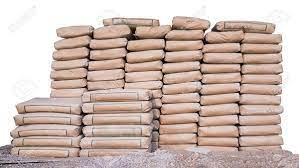
The prices of cement in the provinces have surged to as high as D420 in some areas, nearly D50 more than a few weeks ago.
According to a press release from the Cement Importers and Traders Alliance, this spike in prices persists because all cement in The Gambia is being imported and ‘we are restricting supply’, as acknowledged by both the government and local bagging companies.
‘This policy disproportionately impacts smaller importers and appears designed to benefit a single company: Jah Oil, which continues to leverage its close government ties for its own benefit at the expense of the Gambian consumer. At current cement prices, Jah Oil struggles to make a profit, with millions of dollars in loan payments coming due. It is becoming clear that this entire act was a ruse to make Jah Oil the sole importer of cement and to ensure that prices rise so Jah Oil can reap higher profits.’
In a desperate effort to shore up its quickly dwindling capacity, Jah Oil has dispatched its tankers to the same factories in Senegal to pick up cement.
‘Additionally, neither the government nor Jah Oil will clarify the status of Jah Oil’s Special Investment Certificate or whether Jah Oil is paying any or discounted import duties when its trucks cross from Senegal. Furthermore, Jah Oil continues to claim all its product is the 42.5R grade. If they are indeed importing the 42.5R cement while paying the new duty, their ability to offer competitive pricing is questionable.’
This, according to the release, raises doubts about the true grade of Jah Oil’s product.
‘We are told by reliable sources that Jah Oil also purchased additional input to dilute any 42.5R grade it purchases in Senegal. Finally, Jah Oil's actions highlight the limited capacity of the bagging operators, putting the country at risk of meeting demand less than two weeks of this policy shift.’
While Jah Oil seemingly thrives under this new policy, Gambian transporters and their more than 3,000 direct employees continue to suffer.
Jah Oil appears to be the only Gambian company benefiting from the ECOWAS protocol of free movement of people and goods, while over 200 to 300 trucks, 90% of which are Gambian-owned and operated, are stranded at the border without the ability to pay the new D180 duty per bag of cement.
‘For over 12 days now, these drivers and their apprentices have been enduring deplorable conditions with no access to proper toilet facilities or security as they fend off would be opportunists. This situation has caused immense hardship for the drivers and their families, who have faced financial strain and inadequate living conditions at the border for the past two weeks.’
As Tobaski approaches, these workers desperately need a functioning transport industry to support their families; most of the industry offers double the salary for the month of Tobaski.
The cement they are carrying represents investments from Gambian small business owners of between D75 million to D115 million, which are at risk of hardening or getting spoiled from rains. Additionally, the GRA is losing between D35 million to D75 million per month in border crossing import duties and another D14 million to D21 million in fuel tax revenue not being generated by the idle trucks.
‘It is time for the Gambian government to prioritise the interests of its citizens, not the interests of Hamidou Jah.’





